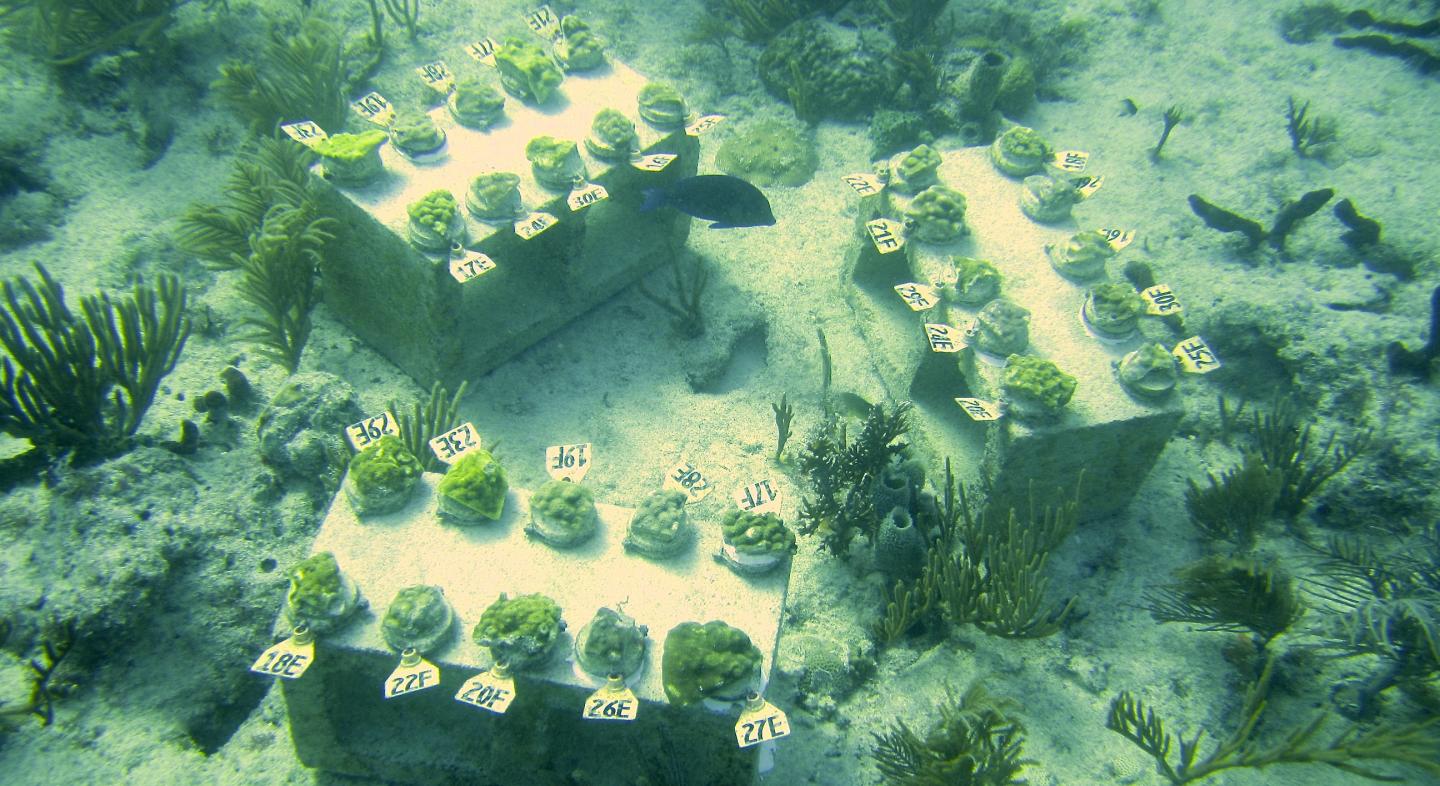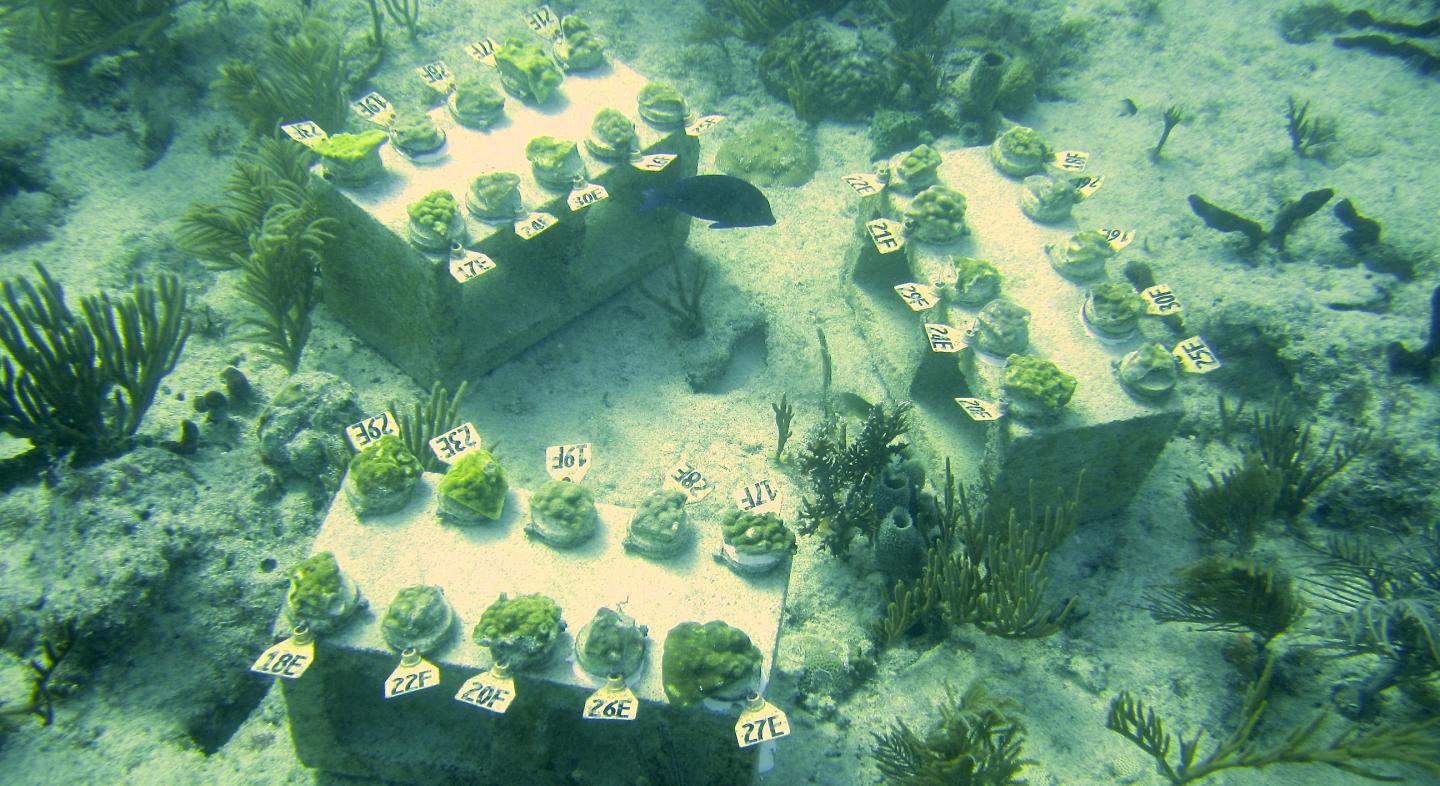
Credit: Carly Kenkel
Scientists at The University of Texas at Austin have observed for the first time that separate populations of the same species — in this case, coral — can diverge in their capacity to regulate genes when adapting to their local environment. The research, published today in Nature Ecology and Evolution, reveals a new way for populations to adapt that may help predict how they will fare under climate change.
The new research was based on populations of mustard hill coral, Porites astreoides, living around the Lower Florida Keys. Corals from close to shore are adapted to a more variable environment because there is greater fluctuation in temperature and water quality: imagine them as the more cosmopolitan coral, adapted to handling occasional stressful events that the offshore coral are spared. When researchers swapped corals from a close-to-shore area with a population of the same species from offshore waters, they found that the inshore-reef corals made bigger changes in their gene activity than the corals collected from an offshore reef. This enabled the inshore corals to adapt better to their new environment.
"It is exciting that populations so close together — these reefs are less than 5 miles apart — can be so different," says corresponding author Carly Kenkel, currently affiliated with the Australian Institute of Marine Science. "We've discovered another way that corals can enhance their temperature tolerance, which may be important in determining their response to climate change."
Differences in gene regulation — the body's ability to make specific genes more or less active — can be inherited and are pivotal for adapting to environmental change. It was already known that separate populations often develop differences in average levels of gene activity, but now scientists have found that populations can also diverge in their ability to switch genes on and off.
"We show that one population has adapted to its more variable environment by developing an enhanced ability to regulate gene activity," says Mikhail Matz, co-author of the study and an associate professor in the Department of Integrative Biology.
Researchers swapped 15 genetically distinct coral colonies from inshore with 15 colonies found offshore to see whether the corals would regulate their genes to match the pattern observed in the local population. After a year, the transplanted populations did show differences: Formerly inshore corals transplanted offshore changed their gene activity dramatically to closely resemble the locals, whereas offshore corals transplanted inshore were able to go only halfway toward the local gene activity levels. In short, corals that originated from the more variable, close to shore environment were more flexible in their gene regulation.
The lack of flexibility took its toll on the offshore corals, which did not fare well at the inshore reef and experienced stress-induced bleaching. Their higher bleaching levels were linked to the diminished ability to dynamically regulate activity of stress-related genes, confirming that flexibility of gene regulation was an important component of adaptation to the inshore environment.
"We saw different capacity for gene expression plasticity between coral populations because we looked at the behavior of all genes taken together instead of focusing on individual genes," says Kenkel. "If we hadn't, we would have missed the reef for the coral, so to speak."
###
The research was funded by the National Science Foundation's Division of Environmental Biology.
Media Contact
Kristin Philips
[email protected]
512-232-0654
@UTAustin
http://www.utexas.edu





